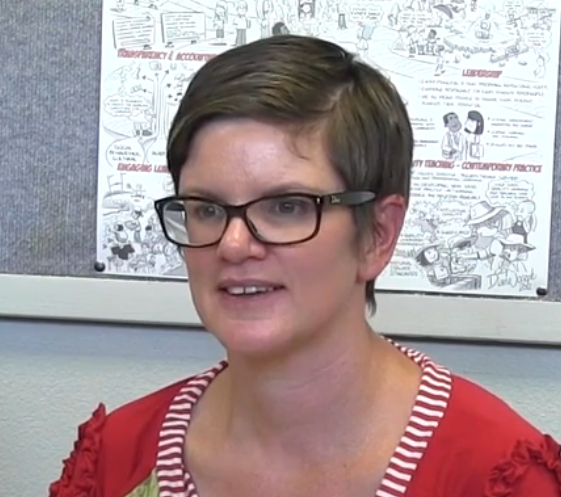Collaboration
Definition
Collaboration means working with others to pursue a common goal, such as ensuring that a student with disability participates in education on the same basis as other students.
Consultations can involve more people than a teacher, or a parent, guardian or carer. There are benefits in bringing together a group of people on a regular basis who can work collaboratively to support a student with disability.
Forming a group
Build a team of people who know the student well.
Education providers are expected to involve people with relevant knowledge and expertise in consultations about adjustments for a student with disability. These could include:
- teachers
- professionals with specialist expertise
- family members
- advocates, where the student or family has sought their involvement
- representatives of other organisations who know the student well.
When individuals meet regularly as a group and communicate effectively as a team, they can work collaboratively to support a student with disability.
The benefits of collaborating as a group include:
- developing more ideas together than working independently
- better involvement in creating a plan, better awareness of assigned tasks and greater likelihood of these tasks being carried out
- participants – parents, guardians, carers and education providers – feel more supported because they don’t have to solve problems on their own.
Tips for collaborating as a group
- When appropriate, invite the same people to formal consultations.
- Be patient and allow time for members of the group to get to know each other.
- Encourage everyone to express their views (when a member disagrees or doesn’t understand something, they should feel free to speak up).
- Focus discussions on the shared goal of meeting the student’s needs.
- Keep records of agreed decisions and actions.
- Communicate regularly with all members to keep them informed.
- Keep an open mind – there could be solutions you may not have thought of.
Collaboration: In practice
- know the student
- bring unique skills, knowledge or perspectives to the group
- are able to participate when required
- share the group’s goal of supporting the student’s participation.
Story: Nina enjoys sport
At a meeting with her daughter’s teacher, Nina’s mother explains that Nina dislikes sport because she has been the last student picked by captains for a team, which embarrasses her. Nina’s mother thinks this might happen because Nina can’t catch balls very well, due to her low vision. She suggests the school purchase a greater variety of equipment, including audible balls, brightly coloured balls, and large lightweight balls that move more slowly and are easier to track.
Nina’s teacher agrees to take this suggestion to the school principal. She asks if Nina’s mother would like to join a meeting with the sports staff to discuss Nina’s favourite outdoor activities and help the school select which equipment to buy.
The teacher also decides to vary the way all sports teams are formed. Instead of being ‘selected’ by a captain, team members will be chosen in less personal ways such as by using decks of cards, matching numbers or birthdays, or by pulling names out of a hat.
- mail Email
-
BookmarkThis bookmark has been added to your bookmarks.Did you know you can organise your bookmarks into separate lists when you are signed in? Sign in or register
